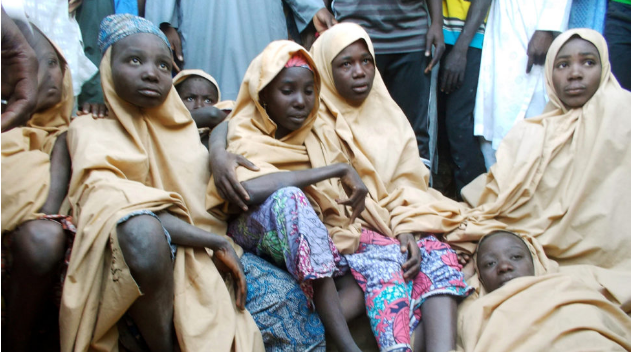Negotiations through a back-channel led to the release of 101 Dapchi girls and a boy, the Nigerian government said Wednesday.
The girls were among the 110 snatched by suspected Boko Haram insurgents from their School on February 19. They were released around 3: 00 am on Wednesday, Nigeria’s minister of information Lai Mohammed said.
“The girls were released around 3:00 am through back-channel efforts and with the help of some friends of the country,” said Mohammed, without elaborating.
Confirmed number has now risen to 101 #DapchiBriefing #DapchiGirlsAreBack https://t.co/f6EeCHekB3
— Presidency Nigeria (@NGRPresident) March 21, 2018
Mohammed told journalists that the number of the girls so far documented after their release has increased from 76 to 91. A boy was among the freed persons, he said. A tweet by Nigerian Presidency’s handle, however, said 101 girls have been released.
“Many of the children that were released were not dropped in one place. Some were dropped on the road, and naturally, they went back to their parents’ houses. They are now being asked to come and be documented at a centre.”
The International Committee of the Red Cross has acted as an intermediary between the government and the Boko Haram on, at least, two occasions, including when a faction of the terror group released some schoolgirls kidnapped from a secondary school in Chibok, Borno State on April 14, 2014.
President Muhammadu Buhari told visiting former US Secretary of State Rex Tillerson last week that the government was more intent on negotiating for the girls’ release rather than use a military option.
“Nigeria prefers to have schoolgirls abducted by Boko Haram from Chibok and Dapchi back alive, and that is why it has chosen negotiation, rather than a military option,” a presidential spokesman said in a statement.
Mohammed said in a statement today that “the government had a clear understanding that violence and confrontation would not be the way out as it could endanger the lives of the girls, hence a non-violent approach was the preferred option.”
“Within the period when the girls were being brought back, operational pause was observed in certain areas to ensure free passage and also that lives were not lost,” he added.
Source: Guardian













